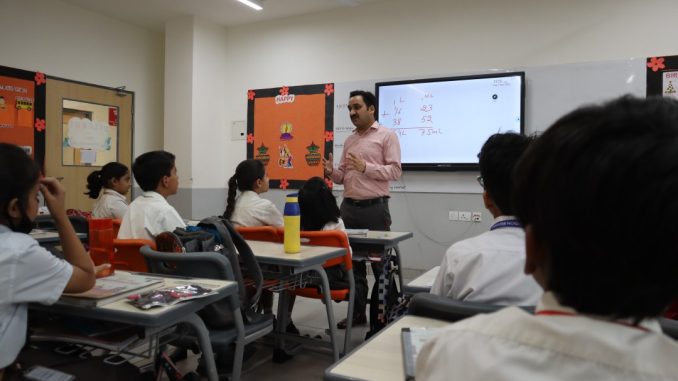
-
Emprowering through Education for the Potential Unlocking potential is one of the functions of education. It turns individuals into people able to carry out every kind of task required by life or career. From nurseries to universities, people are trained not only to think critically and solve their own problems well, but also to express themselves clearly, share their ideas with others forcibly and adapt novel situations. They all receive a solid base of knowl-edge upon which to build life success and ongoing learning.
-
Developing Better Leaders through Learning A crucial role of education involves shaping good leaders. Students learn how to be leaders not only in educational settings such as schools, colleges, graduate schools, and universities, but also through daily dealings with one another. They acquire the basic skills and qualities of leadership: communication, cooperation, decision-making, adaptability and empathy. They draw strength, therefore, from within themselves and are able to bring inspiration to others by the very way in which they behave. Bringing such leadership skills to communities near and far, they are driving positive change that benefits everyone.
-
Fostering Reflective and Creative thinkers Education is the seedbed for tomorrow’s leaders engaged in deep thought, creativity and innovation. Through cultivating learning by inquiry, analytic approach and practical experiment, education fosters an atmospherefor innovation. Tomorrow’s leaders have the skill, they have what it takes to query existingpractice and instead boldly propose novel answers to questions be able to think in un-Customary ways. Education creates a climate which prizes original- ity, inquisitiveness, lifelong learning.
-
Enhancing Resilience and Adaptability
In a constantly changing world, resilience and adaptability are key for good leadership.By teaching people to find difficulties rewarding and to grow out of failures, and to bounce back from setbacks, education is a means of helping us develop resilience.It instills a growth mindset in people, so that they regard setbacks as opportunities for learning and improvement. Tomorrow’s leaders are resilient, adaptable and comfortable navigating ambiguity with confidence.
-
Cultivating Global Citizenship
Education plays a critical role in training tomorrow’s leaders to be global citizens.The exposure to different points of view, ways of life, and global themes which education provides promotes empathy, cultural consciousness and responsibility across the entire community. Tomorrow’s leaders appreciate the global nature of the world and aspire to address problems such as climate change, inequality and social justice which concern all of us.
-
Nurturing Ethical Leadership
Ethical leadership is a prerequisite for creating positive externalities and winning the trust of stakeholders.Education thus inculcates in future leaders moral precepts, integrity and social responsibility.It instills in them the spirit of ethical decision-making, transparent honesty and concern for the consequences of what they do on other people and the natural environment. Ethical leadership is essential to the creation of sustainable organizations and the confidence of the leaders who lead them.
-
Encouraging Lifelong Learning
Education lasts all through our lives-a never-ending journey of learning and growth.Tomorrow’s leaders are life-long learners who recognize the value of continuing education, developing skills and advancing themselves further.Education fosters in people an enthusiasm for learning, curiosity and an urge to discover knowledge that extends beyond the context of formal education settings.In this way, by means of self-directed learning and continuing professional education, leaders of the future keep themselves current, relevant and adaptable throughout their lives.
Conclusion
Education is a force for transforming, lifting people up as well as those who are leaders.One educates for thinking and work that is important in an hour in which one must be extremely flexible just to survive. This education also leads to intercultural relationships, mutual tolerance or respect among different cultures, and teaching social sciences.Tomorrow’s leaders are cultivated root and branch through a transformative education.Today an educated individual possesses knowledge and skills passed down from previous generations. Internally, however, he also has an orientation that allows him to move freely in global directions Tomorrow’s leaders are nurtured by the transformational influence of education. They learn to live in keeping with their own deepest desires while also serving others and respecting the environment. On a legitimate basis they really can unite pleasure with dutyAs we invest in education, we invest in the future. It is the future of individuals who will change the world and bring about a better, more sustainable world that we seek to release through our care and consideration for education’s environments.